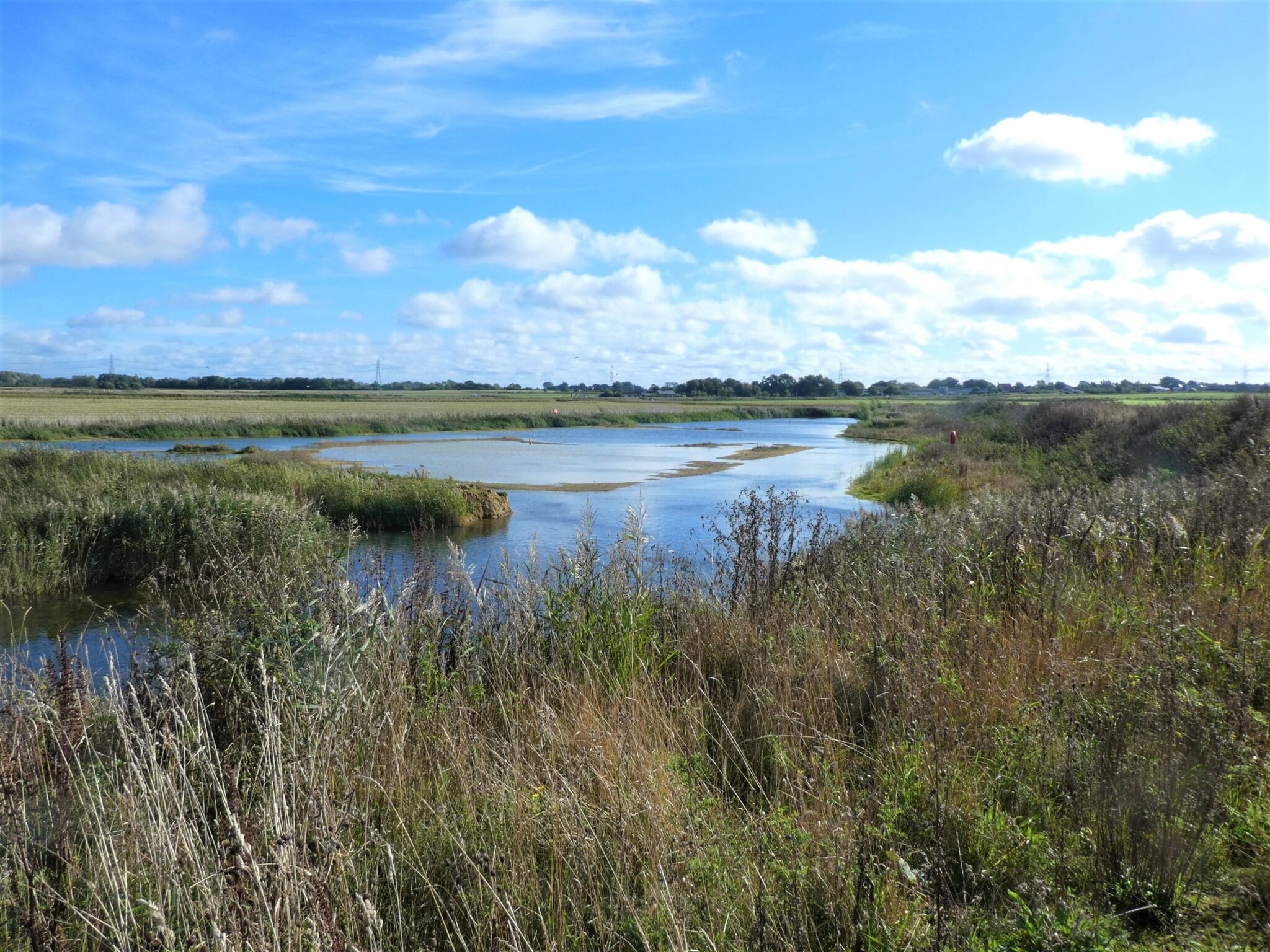
Hainey Farm
Hainey Farm in Cambridgeshire is a founder farm member of G’s Growers, (G’s is one of the UK’s largest salad growing businesses). Today at Hainey Farm (494ha) they grow Iceberg, Little Gem and Romaine lettuce, celery, onions, beetroot and winter wheat amongst other crops, some grown conventionally as well as organically.
The farm became RSPB Fair to Nature certified in 2017, which the farm team sees as the gold standard for wildlife enhancement.
“At G’s Norfolk Farms, we have created a unique habitat combining large-scale salad and vegetable production while allowing wildlife to flourish. We have worked with RSPB Fair to Nature since 2016 and have received valuable guidance from their advisers in helping to identify habitats to incorporate into our farm.
Across our 1,400ha farm, we have c.10% of our total farm in uncropped areas, with 70 miles of native Fen species, Willow and Alder hedgerows and 80 miles of interconnected watercourses and ditches which and provide a natural habitat for biodiversity and Fenland birds to thrive.
We have been able to monitor good populations of farmland specialist indicator species of Grey Partridge, Corn Bunting, Yellow Wagtail, Whitethroat, Lapwing and Skylark across the farm as well as breeding Barn Owls, Kestrels and Marsh Harriers. We are proud to host one of the UK’s largest populations of breeding Nightingales that return not only to the farm but the same bush year after year.”
“The Fenlands are essential to our farming business, and we believe in working with nature to provide the perfect ecosystems for wildlife to flourish and our crops to grow.”
Charles Shropshire, G’s Growers
Benefits of RSPB Fair to Nature for Farmers
Working with RSPB Fair to Nature means support from an experienced conservation advisor who works with the farmer to identify the types of changes that can be made on farm to support nature, including improving the management of existing habitats and interventions that support new habitats. Andrew Holland, (RSPB Agricultural Advisor) said, “Already, bird numbers are increasing, with Reed Bunting and Yellowhammer numbers rising dramatically and a population of Tree Sparrows, not only feeding, but breeding on the farm has now been recorded, which is fantastic,”.
Benefits to wildlife
Since entering into the scheme, a wide range of options have been applied to enhance all flora and fauna. Nearly 12ha of bird seed mix has been sown specifically to provide food during the winter, for farmland birds. Over 20ha of flowers have been sown across the farmed landscape, including ox-eye daisy, bird’s foot-trefoil, red clover and musk mallow. These will provide butterflies, hoverflies, moths and bees with a much-needed nectar and pollen resource throughout the year. Tussock grass margins and grassland fields extend over 28ha of the farm. Margins are placed strategically alongside watercourses and hedgerows to protect existing habitats. 11 miles of joined up habitat snake across the farm. Charles Shropshire says:
“The strategy we have implemented is already showing benefits, which is very rewarding”.
TOGETHER WE CAN CREATE A BRIGHTER TOMORROW
Contact us today to find out how you can become part of the solution.
Register Interest
Sidebar form
or email us at fairtonature@rspb.org.uk
